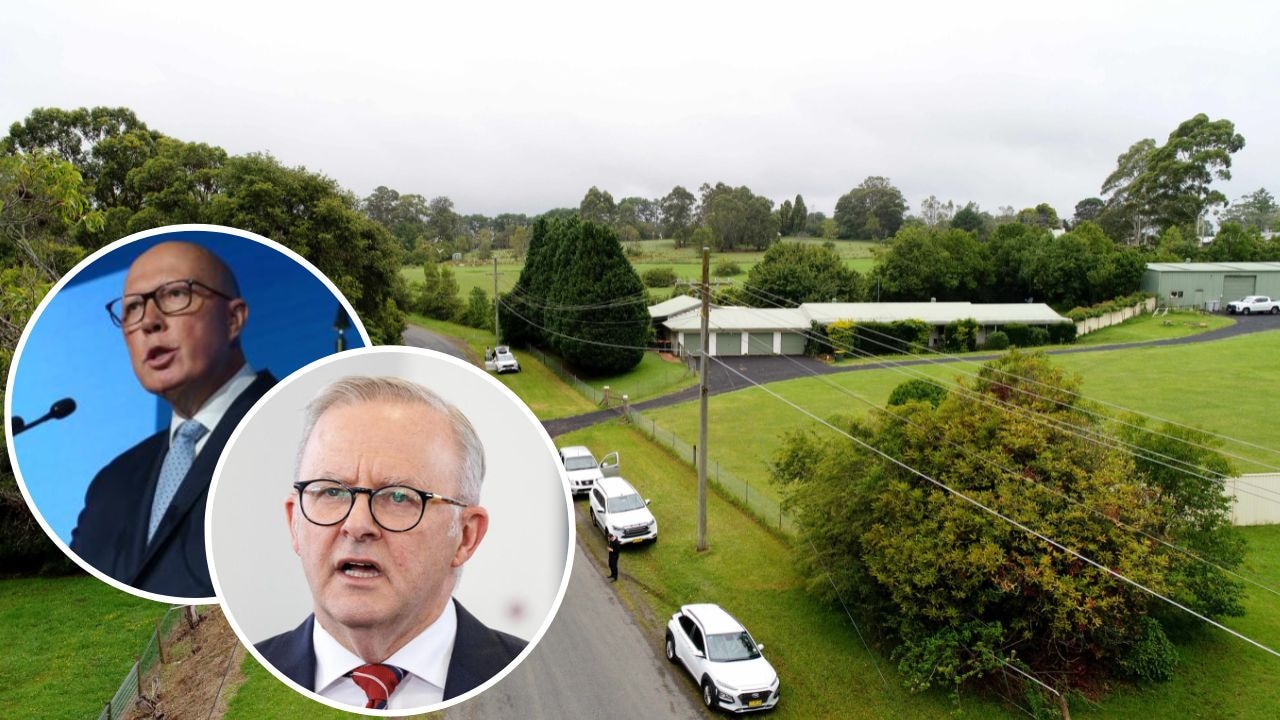Drug treatment hope for kids diagnosed with rare brain cancer
Six-year-old May Kinney had been diagnosed with a brain cancer that has no known survivors. But, for the first time, doctors say there is real hope around treating this hideous disease.

NSW
Don't miss out on the headlines from NSW. Followed categories will be added to My News.
Little May Kinney was given the worst possible Christmas after being diagnosed with a deadly cancer but, for the first time, there is hope for children like her.
In December, May was diagnosed with Diffuse Intrinsic Pontine Glioma (DIPG), a rare brain cancer that affects the region of the brain connecting the spinal cord to the brain stem.
Each year, about 20 Australian children are diagnosed with the cancer and, heartbreakingly, there are no known survivors.
Over the past four years, The Sunday Telegraph has followed the fight for DIPG treatment and hope for Josie Dun, 4; Annabelle Potts, 5; Annabelle Nguyen, 5; Carys Bradshaw, 8; Doris Sun, 4; Kye Funch, 6, and Amity Rogers, 6. All have passed away.
We have followed several to Mexico, in search of hugely expensive treatments not offered in Australia. Nothing has worked.
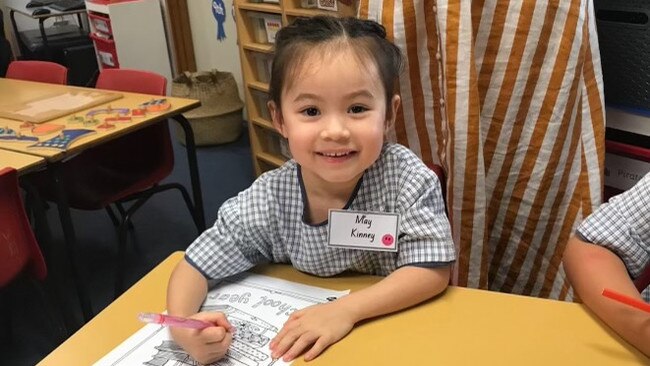
As May, aged 6, undergoes radiation therapy treatments five times a week, her parents David and Helena are doing everything they can so May can be the one that breaks this chain of heartbreak.
“It’s a particularly nasty cancer because it’s so stealthy, sudden and a mystery to medical science,” Mr Kinney said.
But, for the first time, doctors say there is real hope around treating this hideous cancer.
Associate Professor David Ziegler, paediatric oncologist at Sydney Children’s Hospital Randwick and head of brain tumour research at the Children’s Cancer Institute said while there was “a long way to go”, finally some drugs are “shrinking and attacking” DIPG tumours.
“The really big thing that’s changed in the past few years is that we’ve gone from having nothing to offer – and knowing these kids were going home to die – to having more options and more hope than we did previously,” he said.
“We still have a lot to learn and a long way to go but there are signs these treatments are making a difference for these kids.”
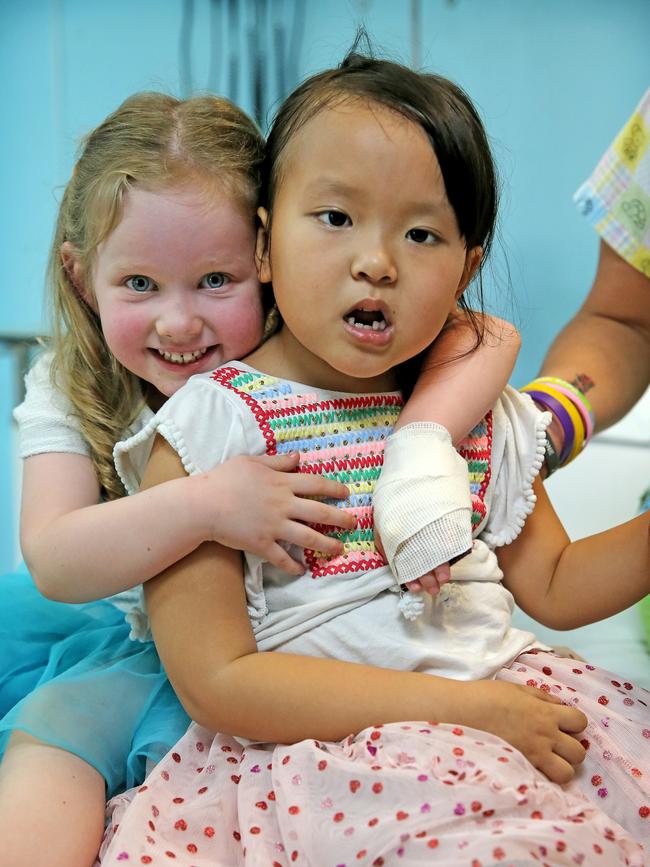
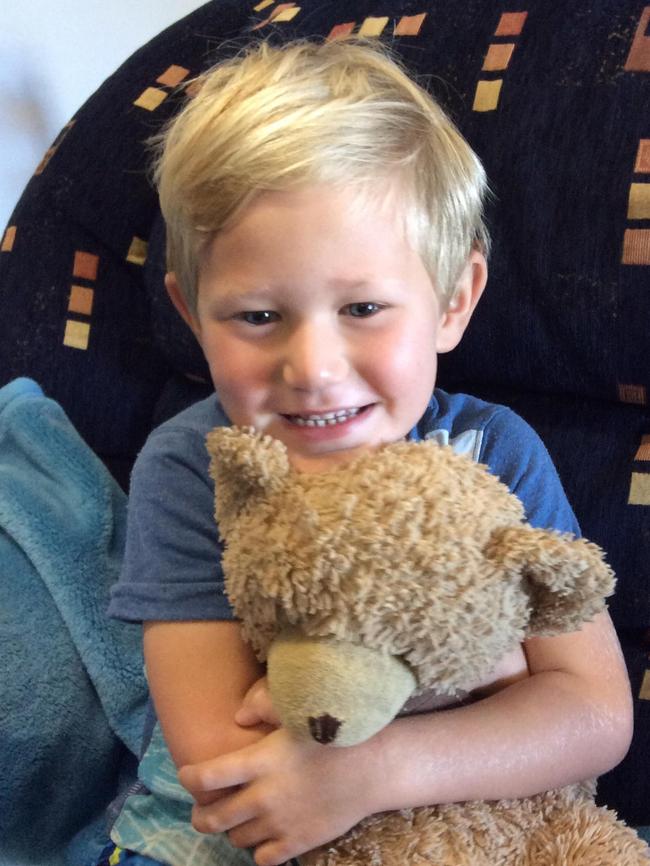
Dr Ziegler said the research here in Sydney was making waves across the world, with families from different countries inquiring about the trials.
“It’s really turned the paradigm on its head, where children were looking to go overseas and now people are looking to come to Australia,” he said.
“It’s great to know we are raising the bar and doing something with leading research, but it’s a reminder of how devastating DIPG is, and how we need to find a cure to make available to everyone.
“There is now a new hope. We have hope and there’s real signs for the first time we will be able to defeat this ultimately.”
An international clinical trial testing a new combination of drugs for the treatment of the most aggressive and lethal childhood cancer DIPG is set to begin in Australia next month, combining a drug called ONC201 and another Australian drug called Paxalisib.
Cancer researcher Dr Matt Dun, whose little girl Josie passed away from DIPG in 2019, said there were positive signs around the new drug combination.
“It targets a couple of features of the tumour and we are hoping that the combination can improve the outcomes for children who don’t respond to ONC201 as a single drug,” he said.
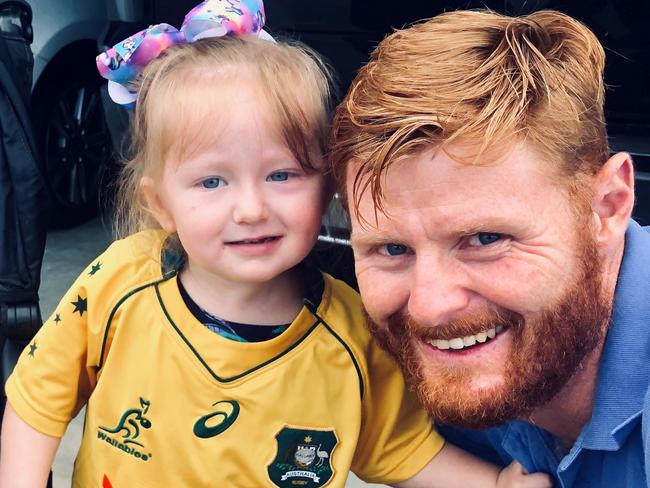
Early phase data from an ONC201 single-drug trial held in Michigan found the survival rate for a child diagnosed with DIPG was up to 20 months, an increase of between nine and 11 months.
However, Dr Dun said that study showed some patients had absolutely no response to ONC201, thus the plans for the combination trial.
Dr Dun has been heavily involved in research into DIPG since Josie’s diagnosis – which was four years ago this week – and still has hope of finding a treatment and cure.
“I can’t describe how much (we) miss (Josie),” he said on the four year anniversary of her diagnosis.
“But, on this tragic anniversary, my thoughts shift to families currently fighting DIPG.”
While May was diagnosed just a couple of weeks before Christmas, her dad David said there were some signs in the months prior that showed his little girl wasn’t herself.
“She became less interested in school and she had always loved it in the past,” he said.
“She had trouble walking in a straight line and using her right hand and her writing started getting messy.”
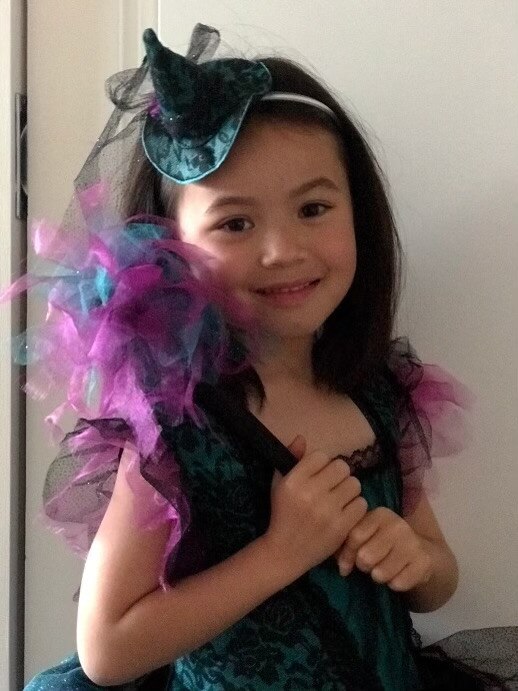
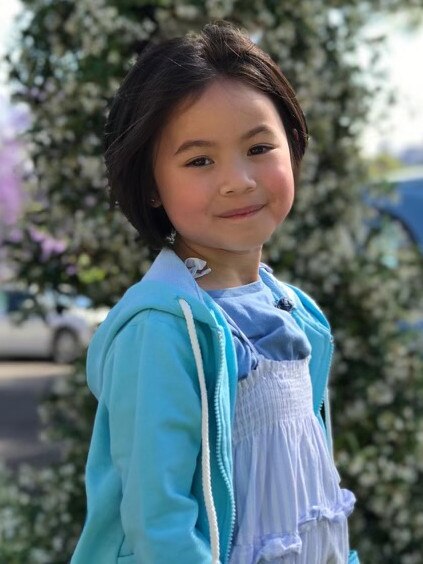
Other signs for May included a droop in her mouth and asymmetry in the face. But when she was taken for an MRI, her parents weren’t expecting the devastating news, just weeks before the holidays.
“We got the talk no parents want to hear,” Mr Kinney said.
“Your world just comes crashing down around you.
“We were looking forward to a break, instead it was the Christmas from hell, and waiting around while your child is in pain is really awful.”
Unlike her friends starting the new school year, May has been in and out of hospital, undergoing treatment. And despite everything she’s up against, Mr Kinney said his little girl is handling it all with bravery and grace.
“She’s bearing really well, she’s a really strong little thing, she’s calm and handling it all really well.
“She’s always had a good sense of humour so it doesn’t take much to get a little laugh out of her.”
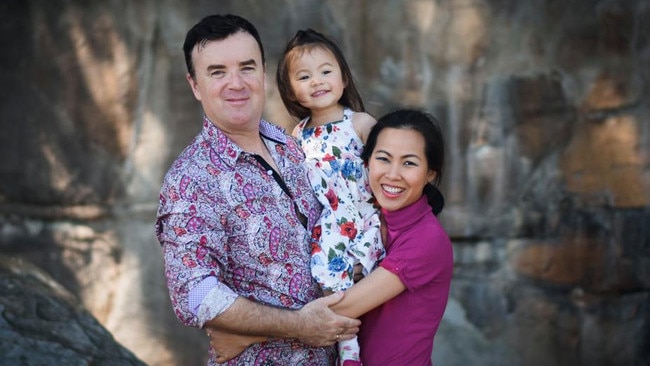
May underwent a biopsy when she was first diagnosed, which was provided to a research trial at Sydney Children’s Hospital that is working to find new tumour treatment and approaches for children and young people with cancers.
“This has been absolutely devastating for us, and we want to raise some awareness for this cancer because there needs to be more research into this,” he said.
The eastern suburbs community has rallied around the Kinney family, raising more than $70,000 in just a few days for David and Helena as they dedicate their time to May.
“It’s been really overwhelming,” Mr Kinney said.
“The dark moments feel like hell, you go through hell for your child, you wish they could have a full life.
“But having the support really does make things that bit easier, and May has loved seeing her friends who have popped over to say hello or offer well wishes.”
Got a news tip? Email weekendtele@news.com.au





